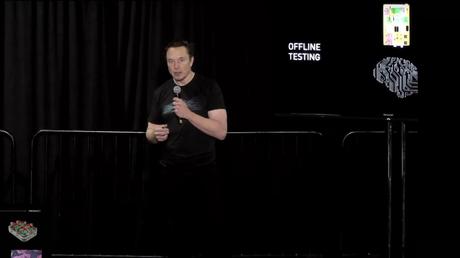
The owner of Twitter indicated that, pending FDA permission, a method for implanting a microchip that enables Bluetooth connectivity between the brain and a computer might be tried in six months.
Elon Musk, the founder of SpaceX, Tesla, and Twitter, said during a presentation of the most current discoveries from his company Neuralink, which develops chips for implanting in the human brain, that “I could have a Neuralink device implanted right now and you wouldn’t even know, hypothetically,” He stated that Neuralink could be ready for testing about 2023.“It could be that I am one of those test samples,” he added, to the delight of those watching the live stream of the event. The man who in recent weeks has offended the American left, gotten into a brief argument with Apple, and turned Twitter on its head spent a few hours disguising himself as a visionary entrepreneur focused on technological improvements.
In 2021, Neurallink released a video of a monkey playing Pong, the ping-pong-inspired video game on the Atari platform. With more than 6 million views, it became a web sensation. The innovation was not that Pager, the macaque, was playing the game, but rather that he was controlling it with his eyes instead of his hands. Prior to six months ago, Musk’s business team inserted two chips on either side of his head. Before the Neurallink was implanted, Pager was taught how to play the game using a joystick, according to Musk.
Musk claims that Neuralink is now prepared to perform human experiments. Musk continued, “We want to be extremely careful and certain that it will work well before putting a device into a human, but we’ve submitted, I think, most of our paperwork to the FDA and we think probably in about six months we should be able to have our first Neuralink in a human.” Worldwide, tens of thousands of people followed the conference online.
Elon Musk presents the chip that his company, Neuralink, wants to implant in the skulls of humans in 2021 to measure brain activity and for other purposes.
An individual directly contacted Musk on Twitter over the potential ramifications of implanting the 25-cent coin-sized gadget inside the human brain. Musk responded, Once you’re in there, there’s a lot of things you can do, a lot of health monitoring.”. “You could measure body temperature to detect a fever early… You could detect a stroke early on because you would see electrical impulses from the brain, something like a short circuit,” he added.
According to Musk, the most significant benefit of the Neuralink implant would be its capacity to restore vision. “I think this is notable in that even if someone has never had a vision like they were born blind, we believe we can still restore vision. The visual part of the cortex is still there. Even if they’ve never seen before, we’re confident they could see,” he stated. However, medical professionals view such claims with skepticism.
Neuralink’s lengthy technical presentation addressed the development of the robot that inserts the chip into the brain, known as Link or R1 and created in 2020, as well as the troubleshooting of tungsten needles, whose production time has been greatly decreased, indicating potential mass production.
Musk’s Neuralink Corp, which has the approval of the Stanford Neuroscience Institute, reported on Wednesday that two monkeys have successfully sent their brain activity to a computer using Bluetooth signals. Images of these macaques revealed that they were utilizing a keyboard telepathically. Musk underlined that they were not actually typing but rather sliding a mouse cursor over the letters. The businessman went on to suggest that those with disabilities would find this software extremely useful since it would enable them to “use their phone faster than someone with working hands.”
This first primate test group will acquire six additional primates in the following months, and Pager will also be enhanced. Musk claims that the semiconductor technology has a very long lifespan and a thousand channels for recording stimulation data. Pager may now use the keyboard as a result of this development. Before testing the technology on monkeys, the company evaluated it on lambs and pigs.
One of the movies displays the quick, millisecond-long pinprick that the company’s robot employs to implant the chip. However, the procedure for inserting the wiring to enable transmission to the external receivers follows. These are comprised of wires approximately the same thickness as human hair. Due to the delicate nature of the implant, according to Neuralink researchers, the procedure would not hurt a grape.
Leave this field empty if you're human: